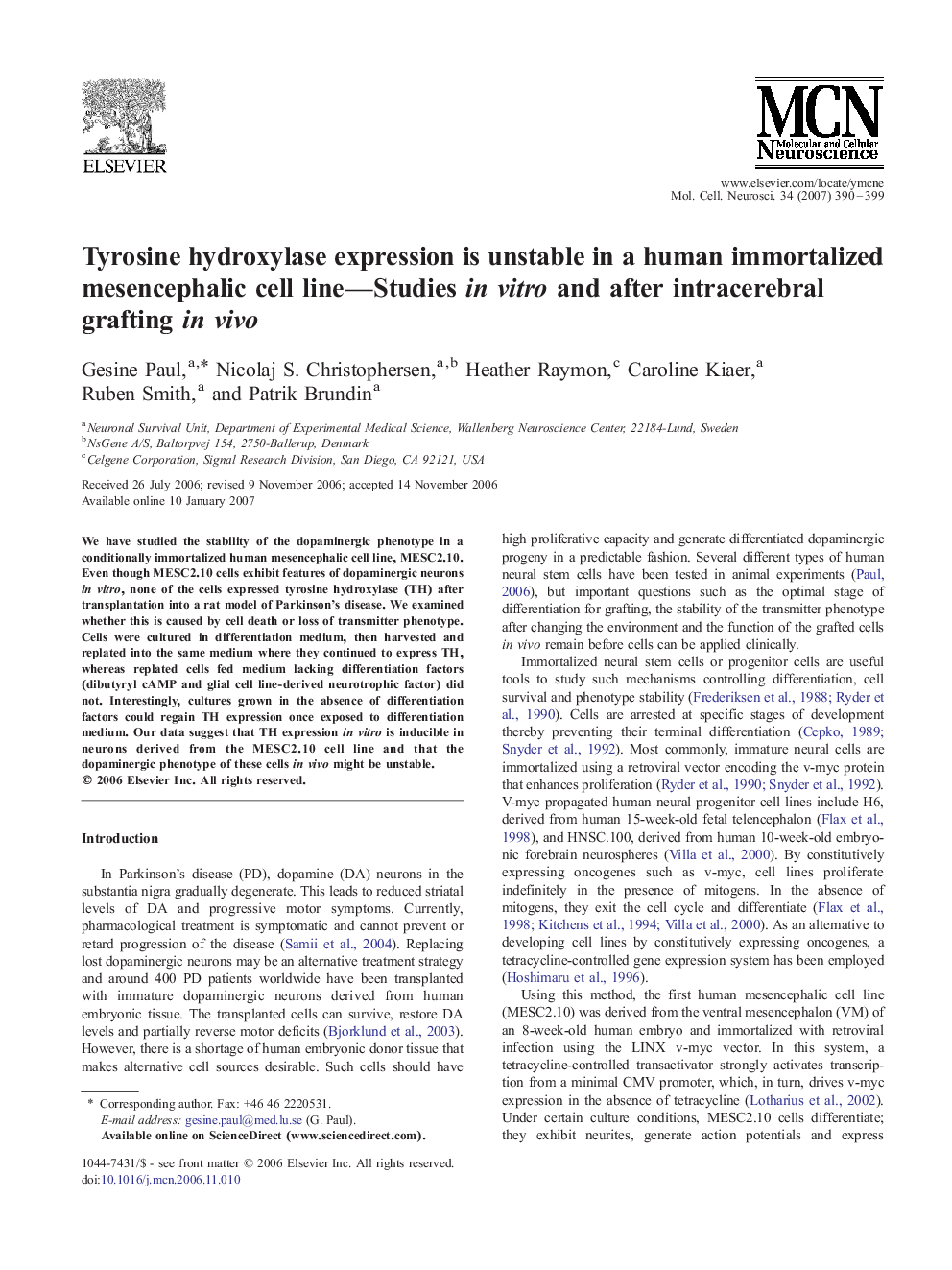| Article ID | Journal | Published Year | Pages | File Type |
|---|---|---|---|---|
| 2199289 | Molecular and Cellular Neuroscience | 2007 | 10 Pages |
We have studied the stability of the dopaminergic phenotype in a conditionally immortalized human mesencephalic cell line, MESC2.10. Even though MESC2.10 cells exhibit features of dopaminergic neurons in vitro, none of the cells expressed tyrosine hydroxylase (TH) after transplantation into a rat model of Parkinson’s disease. We examined whether this is caused by cell death or loss of transmitter phenotype. Cells were cultured in differentiation medium, then harvested and replated into the same medium where they continued to express TH, whereas replated cells fed medium lacking differentiation factors (dibutyryl cAMP and glial cell line-derived neurotrophic factor) did not. Interestingly, cultures grown in the absence of differentiation factors could regain TH expression once exposed to differentiation medium. Our data suggest that TH expression in vitro is inducible in neurons derived from the MESC2.10 cell line and that the dopaminergic phenotype of these cells in vivo might be unstable.
